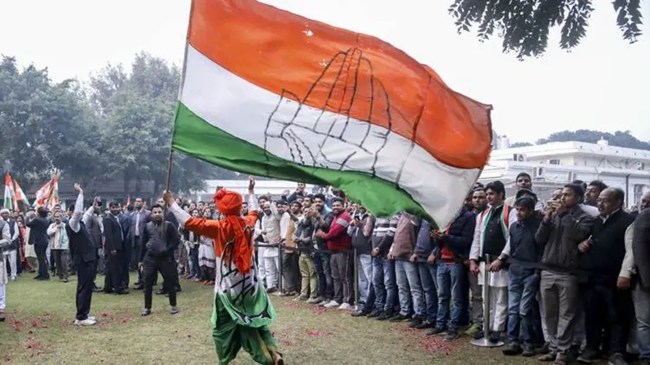Opinion On Constitution Day, Congress must remember its own legacy of undermining it
The Constitution should not be a subject of politics. Instead, protecting its principles should be an inspiration for politics.
 On Constitution Day, it is important to resolve that the Constitution should not be a subject of politics.
On Constitution Day, it is important to resolve that the Constitution should not be a subject of politics. On November 26, 2024, India marked 75 years of adopting its Constitution and resolving to be led by the principles laid down therein. It is an occasion to remember why we, as a nation, chose to be led by a constitution. A constitution establishes the rights and responsibilities of citizens, the structure of the government, and the relationship between the government and the people. It offers a structure within which all actors must act towards the common goal of building a society based on the principles of social, economic and political justice and equality before law.
Even though the Constitution is often defined as a legal document, it has assumed a life of its own, acting as the soul of the Republic. As a result, this “legal document” is not merely a book that lists a citizen’s rights. It is also an invocation to the citizen to fulfill her fundamental duties towards the nation. For us in India, the Constitution is a commitment not to squander the freedom that came at a tragically high cost by constantly striving to build a just, equitable and prosperous society.
For a “book” that is an article of faith for the democratically-spirited people of India to be reduced to a plaything of politics is not just unfortunate but an outright anti-constitutional act. After all, it is not just India’s leaders who participated in drafting the Constitution. Over 53,000 citizens sat in the visitors’ gallery of the Constituent Assembly over nearly three years and watched the debates held during the drafting of the Constitution.
Even as Congress reportedly waves blank copies of the Constitution to the people of the country, over the years when the party was in power, it introduced over 80 amendments. While it is true that all governments have to amend the Constitution in accordance with the demands of changing times, demographics and aspirations of people, Congress is responsible for trying to tinker with the basic structure of the document, restructuring even the Preamble. It is Congress that suspended the Constitution during the dark days of Emergency. The then Congress government led by the late Indira Gandhi amended the Preamble. The 42nd Amendment provided for curtailment of fundamental rights.
In 1976, Justice H R Khanna was made to pay the price for choosing to oppose the suspension of civil liberties. As a five-judge constitution bench heard the ADM Jabalpur vs Shivkant Shukla case and ruled that the right to personal liberty can be suspended in the interest of the state, Justice Khanna wrote, “The Constitution and the laws of India do not permit life and liberty to be at the mercy of the absolute power of the Executive… What is at stake is the rule of law.”
The government of the day extracted its “revenge” on Justice Khanna by superseding him and appointing his junior colleague at the Supreme Court as the Chief Justice of India in 1977. Justice Khanna resigned soon after. On Constitution Day, we need to remember him for standing up to defend a document Indians revere.
India’s Constitution is not just a progressive policy/administrative document, but also one that sets our objectives. Why should a nation develop? What should be the purpose of the executive’s actions? What should the objectives of the judiciary’s decisions be? As per the principles enshrined in the Constitution, justice, social, economic, and political, as well as liberty of thought, expression, belief, faith, and worship for the people of India. And so, while the Constitution on the one hand protects groups and their practices, it ensures individual liberties are firmly guarded too.
The state guarantees protection to groups to practise their faith and ways of life but also ensures those within the group who live differently are free to do so. The Constitution is literally for “one and all”.
As B R Ambedkar said, the Constitution is not a mere lawyers’ document, it is a vehicle of life and its spirit is always the spirit of the age. The age that we live in makes it even more imperative to be reminded of the core values of the Constitution, and that is why in 2015, the Narendra Modi-led government decided to celebrate November 26 and honour the memories of those who made it possible for India to have her own Constitution. It is a day to reaffirm our faith and allegiance to the core values of the document — an article of faith for us.
On Constitution Day, it is important to resolve that the Constitution should not be a subject of politics. If anything, protecting constitutional principles should be an inspiration for politics.
The writer is Union Cabinet Minister for Environment, Forest & Climate Change





